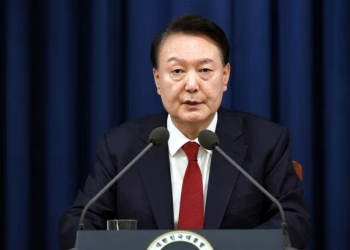A nation’s leader is typically expected to guide the country’s direction, utilizing available tools to achieve this goal. A competent leader effectively meets this expectation, often satisfying the majority, even if shortcomings remain in certain areas.
Currently, however, we are witnessing a clear example of failed leadership. The Gen Z movement has not only highlighted the shortcomings of the current government but has also initiated significant changes in the country.
Few things instill fear in even the most resolute leaders as the prospect of their authority crumbling. While President William Ruto’s position has not entirely collapsed amid recent protests, the unrest has made him acutely aware of his vulnerability.
So, what are the next steps for this Gen Z movement?
Ruto has already been compelled to reconsider his unpopular Finance Bill and has proposed a national dialogue, supported by former Prime Minister Raila Odinga. However, the youth have rejected this invitation, expressing their belief that the current crisis requires action rather than discussion. They have criticized Odinga for failing to represent their interests and emphasized the need for constitutional implementation.
This rejection may be misguided. While it’s true that effective organization typically requires leadership, Gen Z must quickly establish both short-term and long-term goals.
In the short term, the movement has succeeded in unsettling the President and his administration. Some advocates may call for Ruto’s removal from office, but such aspirations are fraught with complications.
As a nation of laws, our first line of accountability lies within Parliament. When Parliament fails, the response of Gen Z has been both necessary and impactful. Their activism has served as a wake-up call for the President, urging him to correct his course.
If Ruto fails to heed calls for government reconstitution, a vigorous confrontation of corruption, and the allocation of resources toward youth employment, the idea of forcibly removing him from office is neither a practical nor lawful solution.
Should the President remain unresponsive to these critical demands, he risks leading a fragmented nation, ultimately jeopardizing his position in 2027.
Conversely, if Ruto successfully reconstitutes the government—ideally through a coalition that democratizes access to resources—he may still preserve his political relevance leading into the next election.
In this context, it is vital for Gen Z to evolve into a more formidable political force in preparation for 2027. Their immediate priority should be to identify not only a presidential candidate but also key contenders for positions in the National Assembly.
Only through such strategic planning can this movement achieve lasting impact.
The Role of Leadership in Navigating Change: A Perspective on Gen Z Activism
Plugin Install : Subscribe Push Notification need OneSignal plugin to be installed.















